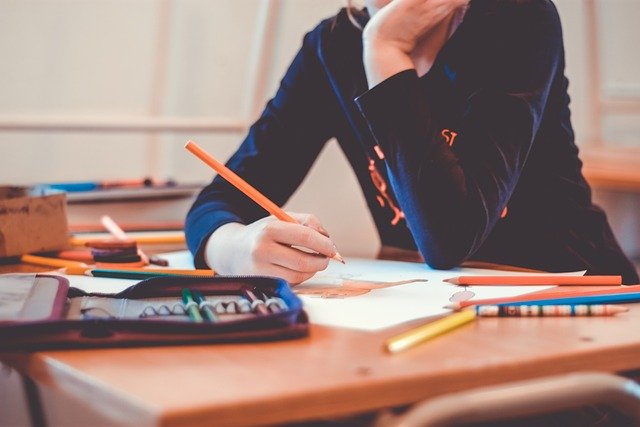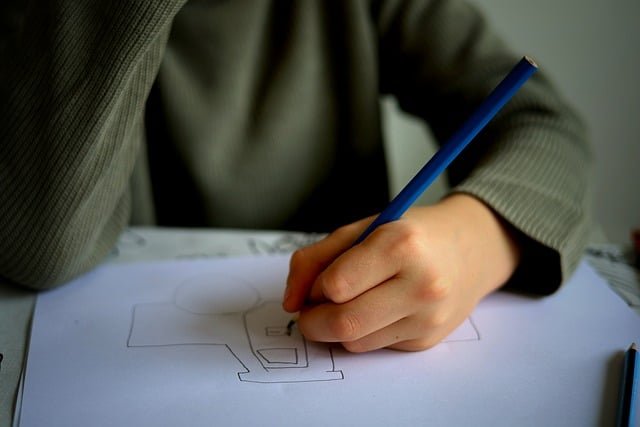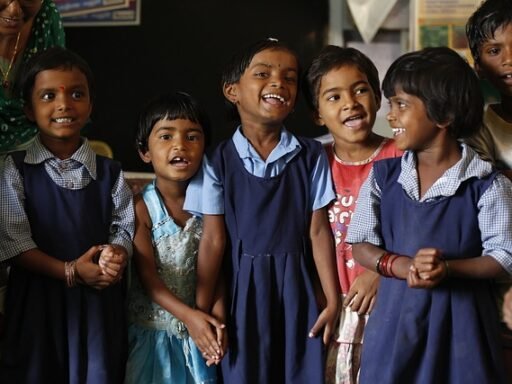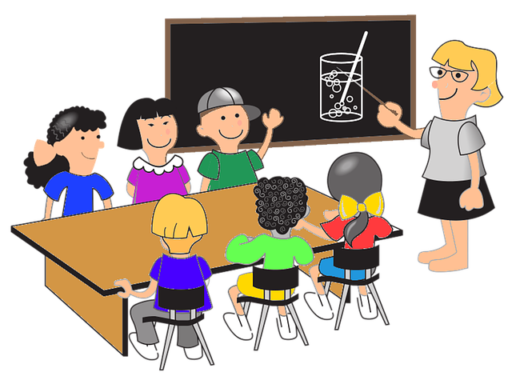
One of the remarkable aspects of Montessori education is its focus on individualized learning. Unlike traditional classrooms where all students are expected to follow the same curriculum at the same pace, Montessori classrooms foster an environment where children progress at their own speed. Through a blend of freedom and structure, students are empowered to explore subjects that interest them the most, enabling a deeper understanding and mastery of concepts.
In a Montessori classroom, personalized learning takes center stage. Teachers act as guides, providing support and encouragement while allowing children to take charge of their education. This approach cultivates a sense of responsibility and independence, nurturing self-motivated learners who are eager to explore new territories and find unique solutions to problems.
Another key advantage of Montessori education lies in its holistic development. The curriculum not only focuses on academic subjects but also places great emphasis on social and emotional growth. Collaboration, respect for others, and conflict resolution are woven into the fabric of daily activities, fostering a sense of community and empathy among students.
Montessori classrooms are known for their hands-on learning materials. These specially designed materials engage multiple senses, making learning a dynamic and multisensory experience. From colorful geometric shapes to tactile letter cards, these materials allow children to manipulate and explore, promoting both cognitive and fine motor skill development.
The benefits of a Montessori education extend beyond early childhood. Research shows that Montessori graduates tend to possess strong problem-solving skills, adaptability, and a lifelong love for learning. These individuals often excel in areas such as critical thinking, creativity, and leadership, setting them up for success not only academically but also in their personal and professional lives.
A Montessori education offers a myriad of benefits that go well beyond traditional teaching methods. By embracing individuality, fostering independence, and providing a holistic approach to education, Montessori classrooms empower children to unlock their hidden potential and become lifelong learners. If you seek an educational journey that nurtures your child’s unique gifts and ignites their passion for knowledge, Montessori education may be the path worth exploring.
Unlocking Potential: How Montessori Education Nurtures Individuality and Self-discovery

Montessori education revolves around the principle that each child is an individual with their own distinct talents and interests. Unlike traditional schooling, which often follows a one-size-fits-all approach, Montessori schools value personalized learning experiences. By recognizing and fostering students’ individuality, Montessori education empowers children to embrace their strengths and explore their passions.
One of the key elements of Montessori education is its focus on self-discovery. Rather than being passive learners, children actively engage in hands-on activities and play a central role in their own learning journey. In a Montessori classroom, students have the freedom to choose from a range of educational materials and work at their own pace. This approach not only cultivates a love for learning but also encourages children to take ownership of their education.

In addition to promoting individuality and self-discovery, Montessori education also emphasizes the importance of community and collaboration. Students learn to respect and appreciate the uniqueness of others while working together on projects and group activities. This collaborative spirit nurtures social skills and empathy, creating well-rounded individuals who can thrive in diverse settings.
Unlocking your child’s potential begins with providing them the right environment. Montessori education offers a holistic approach that recognizes and celebrates individuality, fosters self-discovery, and cultivates a love for learning. By embracing this innovative educational philosophy, you can set your child on a path of personal growth, academic success, and lifelong curiosity.
Breaking the Mold: Why Montessori Schools Are Revolutionizing Traditional Education
Imagine a classroom where children are not confined to desks, but rather empowered to explore and learn at their own pace. Picture an educational approach that values independence, creativity, and critical thinking over rote memorization and standardized tests. This is the essence of Montessori education, a revolutionary method that is breaking the mold of traditional schooling.
At the heart of Montessori philosophy is the belief that every child is a natural-born learner. By providing a carefully prepared environment filled with hands-on materials, Montessori schools nurture a child’s innate curiosity and desire to discover. Instead of passively receiving information, students actively engage in their learning, making choices and taking responsibility for their education.
One of the key elements that sets Montessori apart is its focus on individualized instruction. Rather than imposing a one-size-fits-all curriculum, Montessori teachers tailor their lessons to meet the unique needs and interests of each student. This personalized approach ensures that children are challenged and supported at their own level, fostering a love for learning that lasts a lifetime.
In a Montessori classroom, collaboration takes center stage. Students of different ages work together, fostering a sense of community and encouraging peer learning. Younger children observe and learn from their older counterparts, while older students reinforce their knowledge by teaching younger ones. This dynamic interaction not only enhances social skills but also cultivates empathy, patience, and leadership qualities.
Montessori education goes beyond academic excellence; it aims to develop the whole child. The curriculum embraces practical life skills, promoting independence and self-sufficiency. From pouring water to tying shoelaces, these everyday tasks instill confidence and teach valuable lessons that extend beyond the classroom walls.
Critics may question the effectiveness of Montessori methods in preparing students for the rigors of the modern world. However, research has shown that Montessori-educated students excel academically, emotionally, and socially. They demonstrate strong problem-solving abilities, adaptability, and a lifelong love for learning.
Montessori schools are revolutionizing traditional education by empowering children to become active participants in their own learning journey. By fostering independence, individualization, collaboration, and holistic development, Montessori methods equip students with the skills necessary to thrive in an ever-changing world. As we break free from the constraints of the past, let us embrace the Montessori approach and unlock the true potential of every child.
From Classroom to Life: The Lifelong Benefits of a Montessori Education
Are you searching for an educational approach that goes beyond the traditional classroom setting? Look no further than Montessori education. This innovative method, developed by Dr. Maria Montessori, focuses on fostering independence, curiosity, and lifelong learning in children. By providing a nurturing environment and a hands-on approach, Montessori education offers numerous benefits that extend far beyond the school years.
One of the key features of Montessori education is its emphasis on individualized learning. Rather than following a one-size-fits-all curriculum, Montessori classrooms allow children to learn at their own pace and explore subjects that interest them. This personalized approach not only enhances academic performance but also cultivates a genuine passion for learning. As a result, children develop a strong sense of intrinsic motivation and become active participants in their own education.
In addition to academic growth, Montessori education nurtures essential life skills. Through practical activities like cooking, cleaning, and gardening, children acquire valuable life skills that prepare them for real-world challenges. They learn to be self-sufficient, responsible, and resourceful individuals who can adapt to various situations. These skills lay a solid foundation for success in both personal and professional endeavors throughout their lives.
Furthermore, Montessori classrooms foster social development and emotional intelligence. Mixed-age groupings allow children to interact with peers of different ages, promoting cooperation, empathy, and mutual respect. In this supportive community, students learn to communicate effectively, resolve conflicts peacefully, and collaborate as part of a team. Such social competence is invaluable in building positive relationships and navigating diverse social environments outside the classroom.
Montessori education also encourages creativity and critical thinking. By engaging in open-ended activities and having access to a wide array of materials, children are empowered to think independently and find unique solutions to problems. This freedom to explore and experiment stimulates their imagination, igniting a lifelong passion for creativity and innovation.
A Montessori education offers a transformative learning experience that equips children with the skills and mindset needed to thrive in life. Through personalized learning, practical life activities, social development, and fostering creativity, this educational approach empowers individuals to become self-motivated learners, adaptable problem solvers, and empathetic contributors to society. Whether you envision a future scientist, artist, or entrepreneur, a Montessori education lays the foundation for a fulfilling and successful life journey.
Empowering Young Minds: Montessori Approach Fosters Independence and Critical Thinking
Are you ready to discover how the Montessori approach can empower young minds, fostering independence and critical thinking? Imagine a learning environment where children have the freedom to explore, create, and think for themselves. The Montessori method, developed by Dr. Maria Montessori, has been transforming education for over a century, providing a unique and holistic approach that nurtures the full potential of every child.
In the Montessori classroom, children are seen as capable individuals with an innate desire to learn. The environment is carefully prepared to promote independence, with child-sized furniture and materials that are accessible and engaging. Rather than following a rigid curriculum, children are encouraged to follow their own interests and learn at their own pace. This personalized approach allows each child to develop a love for learning, as they actively engage with the world around them.
One of the key principles of the Montessori approach is the emphasis on practical life skills. Children learn to take care of themselves and their environment, developing independence and a sense of responsibility. They become confident in their abilities to dress themselves, prepare their own snacks, and clean up after themselves. These practical skills not only foster independence but also lay the foundation for further academic pursuits.
Critical thinking is another essential aspect of the Montessori method. Instead of rote memorization, children are encouraged to think critically and solve problems through hands-on experiences. Montessori materials are designed to be self-correcting, allowing children to learn from their mistakes and develop problem-solving skills. They are given the freedom to explore and make choices, fostering creativity and innovation.






